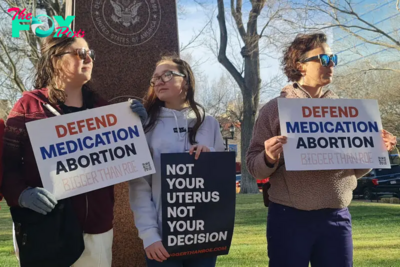Politics
EEE and WNV cases now in Rhode Island region, take mosquito protection as weather stays warm
State Announces Additional Human Cases of Mosquito-Borne Diseases; Urges Rhode Islanders to Take Protective Measures
The Rhode Island Department of Health (RIDOH) and Rhode Island Department of Environmental Management (DEM) are announcing:
- The state’s first human case, in 2024, of Eastern Equine Encephalitis (EEE) virus in a person from Providence County and in their 70s;
- The state’s second probable human case of West Nile Virus (WNV), in 2024, in a Newport County resident in their 60s; and
- The state’s first probable human case of WNV, in 2024, that was announced on August 16 (in a person in their 60s from Providence County) has been confirmed by testing at the Centers for Disease Control and Prevention (CDC).
This is the first case of EEE in Rhode Island since 2019 and is 11th case in Rhode Island since 1983.
“We are seeing more human cases of mosquito-borne disease in Rhode Island and in bordering communities in Massachusetts and Connecticut,” said Director of Health Jerome Larkin, MD. “This underscores how important it is that all Rhode Islanders need to continue protecting themselves from getting mosquito bites. Avoid outdoor activity at sunrise and sunset because that’s when mosquitoes are most active. If you have to be outside, wear long-sleeved shirts, pants, and bug spray with DEET or another EPA-approved repellent.”
Massachusetts maintains a risk map – Rhode Island does not – perhaps because of our size it would not be all that useful. Here is MA risk map for WNV:

All Rhode Islanders should continue protecting themselves from mosquito bites.
- Put screens on windows and doors. Fix screens that are loose or have holes.
- Consider rescheduling outdoor activities that occur during the evening or early morning at sunrise and sundown (when mosquitoes carrying the EEE virus are most active). If you must be outside, wear long-sleeved shirts and pants and use bug spray. Last month, RIDOH, DEM, and the Mosquito Borne Disease Advisory Group (MDAG) recommended that members of the public, schools, and communities consider “smart-scheduling” of outdoor activities during peak mosquito activity hours to help minimize the risk of mosquito bites.
- Use EPA-approved bug spray with one of the following active ingredients: DEET (20-30% strength), picaridin, IR3535, and oil of lemon eucalyptus or paramenthane. Always read the label and follow all directions and precautions.
- Do not use bug spray with DEET on infants under two months of age. Check the product label to find the concentration of DEET in a product. The American Academy of Pediatrics recommends that repellents contain no more than 30% DEET when used on children. Children should be careful not to rub their eyes after bug spray has been applied on their skin. Wash children’s hands with soap and water to remove any bug spray when they return indoors.
- Put mosquito netting over playpens and baby carriages.
In addition, all Rhode Islanders should get rid of mosquito breeding grounds.
- Remove items around your house and yard that collect water. Just one cup of water can produce hundreds of mosquitoes.
- Clean your gutters and downspouts so that they can drain properly.
- Remove any water from unused swimming pools, wading pools, boats, planters, trash and recycling bins, tires, and anything else that collects water, and cover them.
- Remove or treat any shallow water that can accumulate on top of a pool cover. Larvicide treatments, such as Mosquito Dunks can be applied to kill immature mosquitoes. This environmentally friendly product is available at many hardware and garden stores and online.
- Clean and change water in birdbaths at least twice a week.
No information has been updated from the RI Interscholastic League since that of 2 weeks ago:

Last month, DEM conducted an aerial application of mosquito larvicide across 3,000 acres of Chapman Swamp in Westerly and Great Swamp in South Kingstown to reduce mosquito populations and related disease risk. As mosquito season continues, the MDAG will continue to evaluate the risk level statewide and will provide updates if any further mosquito control measures are planned. RIDOH and DEM continue to urge Rhode Islanders to protect themselves and their loved ones from mosquito bites and the diseases they carry.
Best practices for horse owners:
Horses are particularly susceptible to WNV and EEE virus. Horse owners are advised to vaccinate their animals early in the season and practice the following:
- Remove or cover areas where standing water can collect.
- Avoid putting animals outside at dawn, dusk, or during the night when mosquitoes are most active.
- Insect-proof facilities where possible and use approved repellents frequently.
- Monitor animals for signs of fever and/or neurological signs (such as stumbling, moodiness, loss of appetite) and report all suspicious cases to a veterinarian immediately. If you are unsure if your horse is properly vaccinated, consult your veterinarian.
Although extremely rare in humans, EEE virus is very serious and has a much higher human mortality rate than WNV. Approximately 30% of people with EEE virus die, and many survivors have ongoing neurological problems. Unlike WNV, which is prevalent in Rhode Island every year, EEE virus risk is variable, changing from year to year. For more information on EEE virus and ways to prevent it, please visit www.health.ri.gov/eee.
WNV is the leading cause of mosquito-borne disease in the continental United States and is much more prevalent than EEE virus. Cases of WNV occur during mosquito season, which starts in the summer and continues through fall. There are no vaccines to prevent or medications to treat WNV in people. Fortunately, most people infected with WNV do not feel sick. About one in five people who are infected develop a fever and other symptoms. About one out of 150 infected people develop a serious, sometimes fatal, illness. For more information about WNV, please visit www.health.ri.gov/wnv.
Visit health.ri.gov/mosquito for additional mosquito prevention tips, videos, and local data. DEM traps mosquitoes weekly and tests them at the RIDOH State Health Laboratories. From June through to the first hard frost of the season, which usually occurs in mid-October. DEM issues advisories on test results, with additional reports as necessary. Typically, positive test results trigger additional trapping to assess risk.
-

 Politics3h ago
Politics3h agoHow the Biden Administration Protected Abortion Pill Access—and What Trump Could Do Next
-

 Politics3h ago
Politics3h agoWhy Trump’s Tariffs Could Raise Grocery Prices
-

 Politics14h ago
Politics14h agoThe First Trans Member of Congress Expected Pushback Like Mace’s Bathroom Rule
-

 Politics14h ago
Politics14h agoNew York Prosecutors Oppose Dismissing Trump’s Hush Money Conviction
-

 Politics19h ago
Politics19h agoWhite House Christmas Tree Is a Symbol of Resilience for Hurricane-Hit North Carolina Farms
-

 Politics21h ago
Politics21h ago3 strategies to help Americans bridge the deepening partisan divide
-

 Politics1d ago
Politics1d agoHakeem Jeffries Wins Reelection as House Democratic Leader Despite Party’s Losses
-

 Politics1d ago
Politics1d agoHow Grover Cleveland’s Grandson Feels About Donald Trump Becoming the Second U.S. President to Serve Nonconsecutive Terms



























